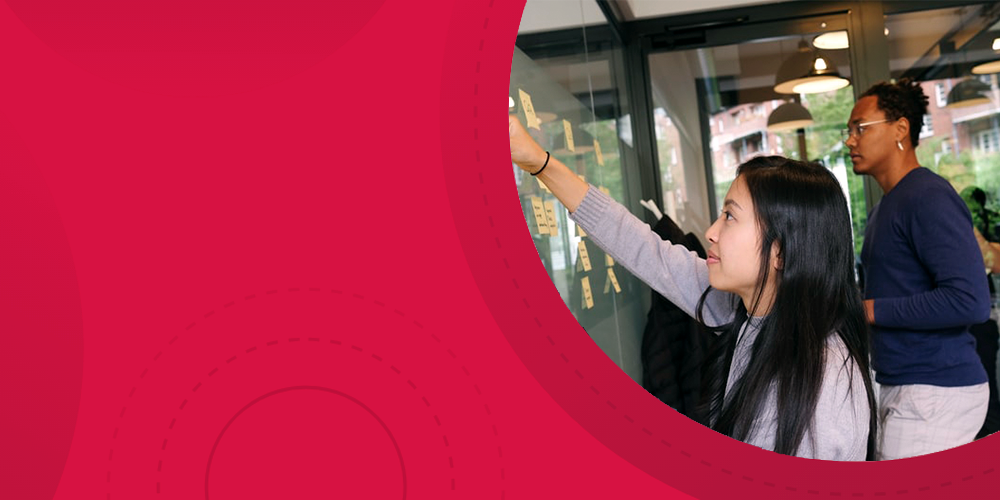Greater emotional intelligence has been found to help to relieve stress, communicate more effectively, empathise with others, be better leaders, and more easily overcome challenges.
Our emotional intelligence can have great positive impacts for us and our organisations, and best of all, it can be worked on and improved! Read on to see how…
First off, what is Emotional intelligence (EI) and why is it important?
Bringing emotion to intelligence and intelligence to emotion…
 EI can best be described as the ability to monitor one's own and
EI can best be described as the ability to monitor one's own and
other people's emotions, to discriminate between different emotions and label them appropriately, and to use emotional information to guide thinking and behaviour
Research into EI within the workplace has unveiled powerful findings relating to the benefits of high EI within an organisation:
- AT&T found that 91% of top performers were high in EI, and that EI explained nearly 60% of job performance.
- The US Airforce reduced recruiter turnover from 35% annually, to 5% annually by selecting candidates high in EI – a $3 million saving!
- Coca Cola observed division leaders who developed EI competencies outperforming their targets by more than 15%. Also, division leaders who didn’t develop their EI competencies missed targets by 15%.
You may have heard the old adage ‘People don’t leave jobs, they leave poor managers’ - well there is strong research suggesting EI may be at the core of why this is sometimes the case:
Johnson & Johnson found high performing managers were significantly more emotionally competent than other managers.
EI has also been associated with many more important work-related outcomes such as:
- Increased management skills through enhanced communication and conflict resolution.
- Higher job satisfaction.
- Improvements in teamwork.
- Advanced coaching skills.
- Higher employability.
Seemingly, the proof is in the pudding when it comes to tangible and less tangible benefits of what higher EI can provide.
But how do we harness it to realise these benefits in our personal and professional lives? Well to answer that, we first need to break the concept down in order to take targeted action…
A Model of EI
Luckily, researchers in the field of EI have done just that. There are a handful of key theories breaking down the concept of EI into its component parts. The most popular of which is Goleman’s model of EI.
Goleman’s model breaks EI down into:
-
- Self-awareness — knowing what one is feeling at any given time and understanding the impact those moods have on others.
- Self-regulation — controlling or redirecting one’s emotions; anticipating consequences before acting on impulse.
- Motivation — utilizing emotional factors to achieve goals, enjoy the learning process and persevere in the face of obstacles.
- Empathy — sensing the emotions of others.
- Social skills — managing relationships, inspiring others and inducing desired responses from them.
- Self-awareness — knowing what one is feeling at any given time and understanding the impact those moods have on others.
Now that we have a structure in which to understand EI, we can now target these areas more specifically in order to develop them and consequently improve our own EI.
Here are a few ways to do this:
1. Self-awareness
“Nobody learned anything whilst they were the one talking.”Set time in your day/week to reflect – consider whether anything has bothered you recently – perhaps an interaction with a colleague, and reflect why. Make use of writing in a journal to help you structure your thoughts and better understand yourself and what exactly has bothered you. You can go back and read over them from time to time and “study” yourself and learn your own core values.
- Meditation – spend 5-10 minutes to quietly breathe and relax, paying attention to your breath. Your mind is inevitably going to wander, so focus on bringing your attention back to your breath whenever you notice your thoughts drifting. This practices control over your thoughts. Thoughts dictate subsequent positive or negative emotions. Stronger control over your thoughts will lead to stronger control over your emotions.
- Ask for feedback – asking for constructive feedback on how you behaved and handled certain situations may enlighten you to areas of development you did not know you had. Be open minded and prepared to challenge yourself.
2. Self-regulation
“Success is not final, failure is not fatal, it is the courage to continue that counts.”
- Recognise you have a choice in how you respond – reframe challenges as opportunities in disguise and failures as learning experiences. Work on recognising and accepting negative emotions and communicate how you feel.
- Utilise stress tolerance techniques in challenging situations – regular deep breathing techniques can help reduce anxiety and stress, help sleep and mood and therefore prevent you from acting impulsively, especially during conflict. Mindfulness is another technique to consider.
3. Motivation
“Whether you think you can or whether you think you can’t, either way, you’re right.”
- Celebrate successes – take time out and celebrate each one of your wins. Be disciplined and allow yourself the time to reflect on your achievements, no matter how small. However, be careful not to overuse extrinsic rewards such as over indulging in food or spending!
- Goal-setting – break down your to-do list into bite-size chunks. Use the SMART goal setting technique to structure your goal setting.
- Clearly defined responsibilities – ensure accountability is defined within workloads so you know what your specific challenges and direct objectives are.
4. Empathy
“No one cares how much you know until they know how much you care.”
 Listen – pay attention to your surroundings and focus on reading the atmosphere in a room. Watch for body language and tone of voice to really tune in to the emotions of others.
Listen – pay attention to your surroundings and focus on reading the atmosphere in a room. Watch for body language and tone of voice to really tune in to the emotions of others.- Practice being open about how you feel – understanding how others are feeling may take you ‘going first.’ Opening up about your emotions or experiences may unlock the door to others doing the same around you so that you can understand their perspectives that you may have initially disagreed with.
- Engage in something that will help others – you could also try talking to new people or volunteering for a cause you either care about or know little about e.g., a community project.
5. Social Skills
“Good communication is the bridge between confusion and clarity.”
Aim to put yourself in new situations – try communicating with others that you normally may have no reason to. Practice ice breakers to start these conversations.
- Focus on your communication skill – ask open questions and maintain eye contact and open body language whilst practising active listening.
- Practice understanding others – show interest in others and make a mental note of what they positively respond to by noticing their social skills and body language. Practice tailoring your behaviour to suit the style of different individuals.
Summary
These tips and techniques can go a long way in making you a more effective leader, team member, and friend. Through enhancing your EI, you will communicate better, be more understanding of your emotions and how to control them, and also be more understanding of those around you.
Many organisations have successfully integrated EI training into their learning and development initiatives to help boost wellbeing and productivity. It is recommended that organisations at least provide an intervention raising awareness of what EI is, why it is important, and what they can do to improve their own.
How emotionally intelligent are you? Is this something that is talked about enough within your organisation? Tell us your thoughts on EI and its uses…
Finally, if this is something you think your team or organisation could benefit from, contact us to learn more about Sten10’s Introduction to EI course.
Alternatively, if you would like to assess the EI of your people, we have extensive experience in doing this that we would love to share with you. Email me at chris@sten10.com
Are you interested in setting up a 'best in class' development centre? We've created a guide that looks closely at how to accelerate your top talent and create future leaders. To download the guide, click the link below.




